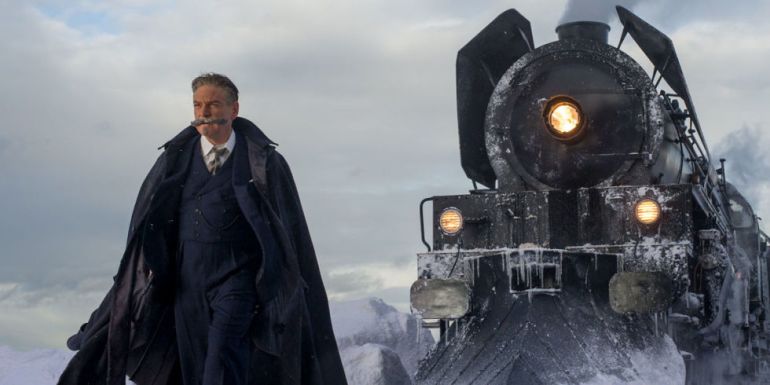As cold weather starts to freeze the nation and make you pull out your big Winter coats, film season really begins to hit its stride, and Murder on the Orient Express looked to captivate the fresh faced cinema goers looking for a tale for the whole family. Annoyingly, this film doesn’t hit the mark and truly derails itself from the start.

You’ll automatically think of the old-school TV shows that ran on ITV 4 when you think of the name Poirot, but this time around Kenneth Brannagh is lending his talents to the Belgian detective tasked with solving a murder on board one of the most famous trains in the world. He tops off an incredible cast, including Judi Dench, Michelle Pfeiffer, Johnny Depp, Olivia Coleman and Daisy Ridley to name but a few. As each character boards the train, you have this flutter of excitement for what’s to come. There’s but a few clues as to possible murder suspects, leading you to go on the journey with Poirot on discovering the mystery behind the death. It’s this journey that never actually gets going, something you expect to happen from the point of the victim’s remains being discovered.

Brannagh both stars and directs this Agatha Christie tale, and chooses some interesting shots and placements of scenes for these characters to sweat it out in. Some work beautifully like the first rolling shot as Poirot boards and walks the whole length of the train as you see glimpses of each of the players in the game, as well as how broad the stage is for possible crevices and hideaways. But some shots just feel thrown in; an experiment that hasn’t been executed well at all. An overhead shot, for example, is stuck to for well over a minute but doesn’t move much. It would have been nice to see these different angles being played with throughout the film rather than being shoehorned in and underused. You’re left pretty unsatisfied and yearning for a more daring use of these shots to cast more mystery and intrigue. It’s a similar story with the writing, with the tone stuck somewhere between a stage play and just bluntly narrating what is going on. With a mainstream film like Orient Express, you’d tend to lean towards telling the audience what is happening rather than showing them, but speech airs too far on the explicit side of trying to build relationships between characters in a fairly unnatural way. While set in the 1930, there’s moments of joy in the writing (‘Fudge’ is comically perfect), but it seems muddled in whether it’s taking itself seriously, and in turn puzzles the audience as to whether it’s a comedy or straight acted.
Orient Express is another example of a film hyped up by its trailer, promising an ominous and thrilling ride towards an interesting conclusion, but it doesn’t match this through its near 2 hour run. Visually stunning but lacklustre in story delivery, it’s a shame that one of the most famous Christie novels doesn’t get the big screen outing it deserves.
Check out the trailer below:




